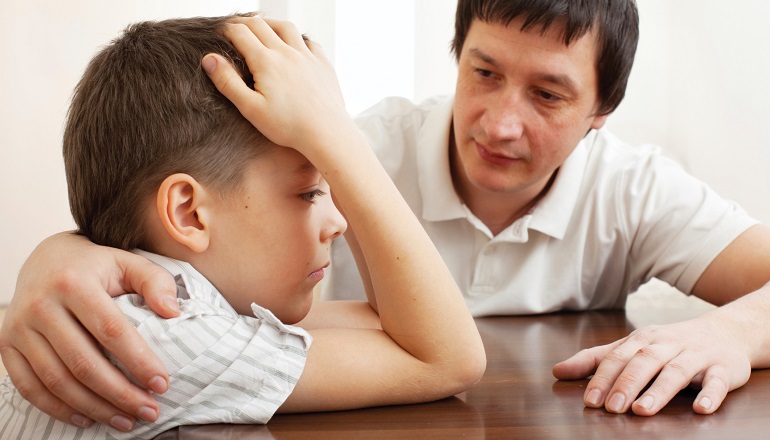When Janice and Paul’s daughter turned 7, they breathed a sigh of relief. Last year Emily’s favorite word was “no,” and she talked back constantly. Alas, now she seemed worried and sad. She felt that no one liked her at school, that the other kids thought she was weird.
Mood Swings
Emily is experiencing the normal moodiness of a 6- to 8-year-old, on the route from dependence to partial independence. The 5-year-old is parent-focused, age 6 through 7 brings a focus on self; and by age 8, the child is ready to become “other-focused” once again.
The 6-year-old often demonstrates burgeoning independence by acting defiantly. She is self-critical, as well, because she’s discovering a self to be critical of. At 7, her thinking becomes more abstract. She’s aware that there are forces in the world that could harm her–war, robbers, and so on. By age 8, the child has matured enough to cope with the differentiation of self and to reason with himself about his fears.
This developmental period can bring complicated questions and feelings to an adopted child. Before, she may have simply accepted her adoption as a fact. Now, she may ask why her birth parents gave her up, fearing that a flaw of hers influenced the decision, and worry about being excluded from friendships because she’s “different.”
Seeing the Truth
When our children have growing pains, it’s hard not to experience them ourselves. Yet, we must push past our feelings to see the developmental nature of their questions and emotions. Recognize that “I wish you’d never adopted me” is not about you. Likewise, when you hear “No one likes me because I look different,” know that all kids this age complain of friendlessness.
Acknowledging your child’s changing emotions helps her feel accepted. When you answer “I wish you’d never adopted me” with “You sound angry with me,” you honor her feelings and put the emphasis where it belongs–on the fact that all children feel angry sometimes.
Your empathetic statement helps your child accept her feelings, and ultimately, herself. Handled well, this tricky period can encourage a more confident child who feels good about herself and her place in the family.



